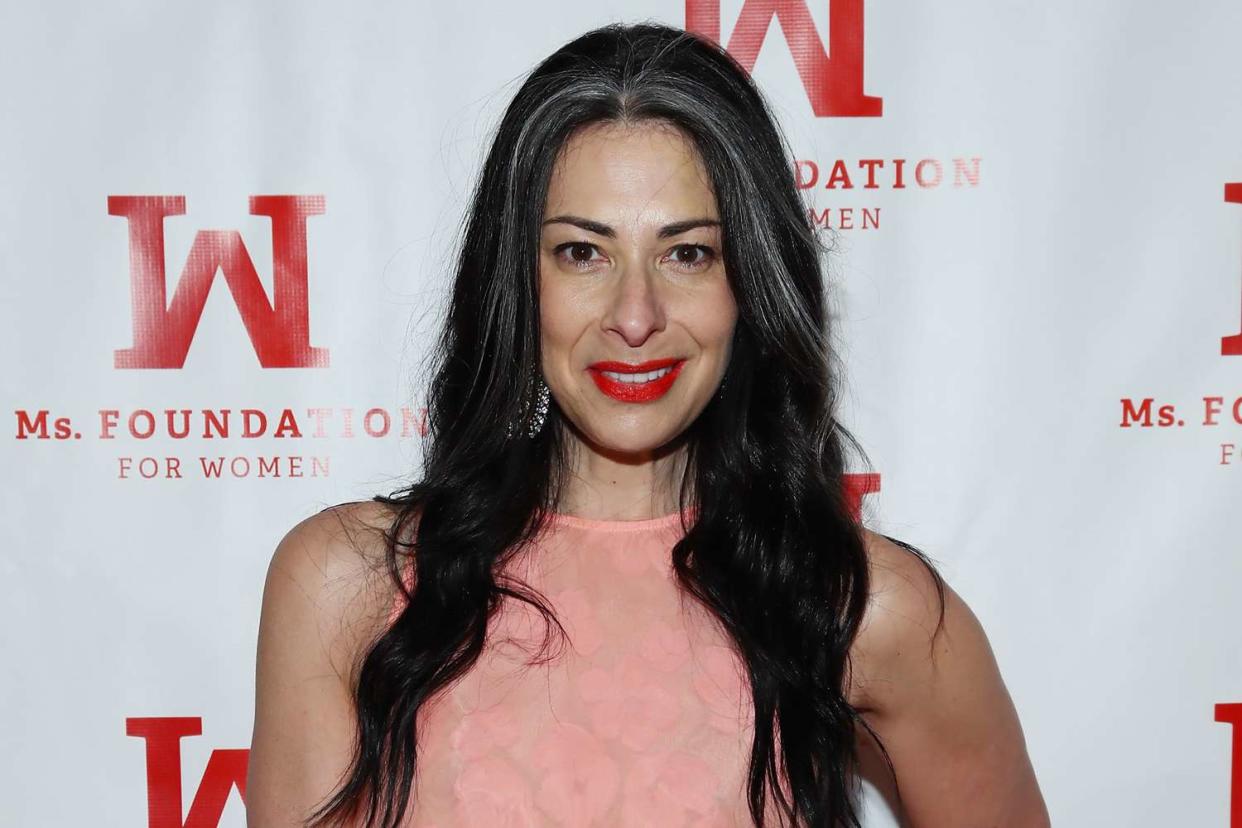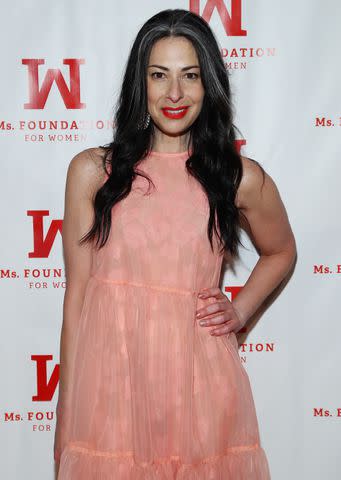Stacy London on Misconceptions Behind Menopause: ‘We Have to Connect the Dots in Order to Understand What Is Happening’

She also discusses ways women can prepare for the onset of menopause and perimenopause

Astrid Stawiarz/Getty
Stacy LondonStacy London is continuing her quest to change the conversation around menopause.
London, 54, who rose to fame on TLC's What Not to Wear, has been using her platform in recent years to help be a vocal advocate for women going through menopause in hopes of making it less stigmatized to discuss. But as she recalls, it wasn't a conscious decision to start this initiative; it came to her when she couldn't find the resources she hoped for.
"I don't think there was a specific point where I said, 'I'm going to be an advocate for menopause.' I mean, I don't know anybody who thinks they want to do that, but it really happened to me sort of out of necessity. And necessity is the mother of invention, but desperation is the mother of invention and necessity," she says.
She continues: "At around 47 when I started to experience a difference in my career, difference in my physical appearance, difference in my mood, difference in my financial situation, I started to think, 'Oh my God, is this a midlife crisis?' And frankly, I didn't know anything about menopause. I didn't know anything about hormonal fluctuation and I didn't know how it affected all parts of the body. So for me, once I started to realize what was happening, once I started to do my homework, I realized nobody is talking about this and there are going to be 1 billion people in menopause in 2025. So I better start now."
Related: Stacy London Wants Women to Start 'Celebrating' Menopause Instead of 'Bitching About It'
London is just one celebrity adding her voice to the chorus of celebrities drawing attention to menopause; others include Naomi Watts, Oprah and Drew Barrymore. (London will be hosting a retreat at Tucson's Canyon Ranch from Sept. 19-24 to continue the conversation.)
"It's very important to have high profile people talking about this because we need to rid menopause of stigma and shame and fear, and it is a very natural transition that we have sort of almost villainized in our society," London says. "It is something that we need to learn to accept and sort of shift our perspective around so that we can really have great tools to manage it and see what happens on the other side of it."
In the meantime, she's speaking out about some common misconceptions around menopause and the time surrounding it, including perimenopause.
When it comes to perimenopause, London says that women can expect to have the same symptoms that women usually associate with menopause like hot flashes, night sweats, insomnia, brain fog, joint pain and muscle fatigue.
“They also feel scary when it's about mood, rage, anxiety, dread, depression, when all of those things happen around the same time or you don't know that they're connected to each other, it can feel like a deluge of things are going wrong,” London explains.
“And it's not wrong for any of these things to happen,” she continues. “It's that we have to connect the dots in order to understand what is happening to us — because any one of those symptoms by themselves is very easy to brush aside and dismiss.”

Astrid Stawiarz/Getty
Stacy LondonAnother thing she hopes people consider is that there can be unintended consequences of the physical change; studies show that women between 45 and 55 are at the “most vulnerable” for things like depression, divorce and loss of earning potential.
“What we have been calling the midlife crisis is really both a confluence of what is happening to us in terms of hormonal fluctuation and life stressors,” she says.
London says women should prepare for what she calls a "transformation," which can include taking natural supplements to prepare, working with a functional medicine doctor or a gynecologist or taking hormone therapy.
“But you can't make those choices unless you know what it is that you're up against, what the risks and benefits are for you specifically,” she says. “And that's what's very hard when we're talking about a stage of life. People are going to experience this differently."
Never miss a story — sign up for PEOPLE's free daily newsletter to stay up-to-date on the best of what PEOPLE has to offer, from juicy celebrity news to compelling human interest stories.
Ultimately, what London hopes comes from her advocacy is a new way of thinking about what life after menopause can look like.
“We have been taught, particularly as women in culture, to be afraid of aging,” London says. “But then you get to this midlife stage and it becomes the artist's way. It becomes all of the things that you can do with the knowledge that you have, all the ways that you can help shape your community, your world around you.”
She adds, “There is something so wonderful and exciting about that, that we are no longer beholden to the same values that we were held to when we were younger.”
For more People news, make sure to sign up for our newsletter!
Read the original article on People.

